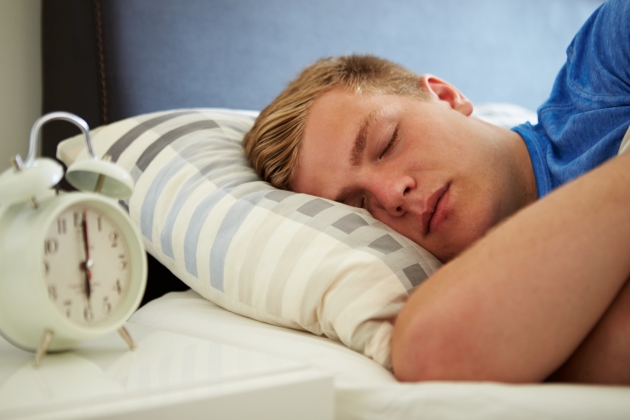If a glowing blue light regularly emanates from beneath the door of one of your bedrooms late at night, there is a good chance you live with a teenager. Open that door, you’ll likely find a room aglow with screens and buzzing with the chirps of Snapchat notifications and the vibrations of text messages.
What you probably wouldn’t see, however, is a sleeping child.
The constant glow of those ubiquitous screens, along with teens’ overscheduled lives and the biological shift in adolescent sleep patterns conspire to prevent teens from getting the 8 to 10 hours of sleep that they need each night to function properly.
Getting too little sleep limits adolescents’ ability to learn and perform well at school. It can contribute to inefficient studying, difficulty dealing with stress, behavioral problems, over-eating and illness. It’s a bad habit that could affect long-term health.
Shifting sleep habits sometimes isn’t easy, and the results might not be noticeable for two to three weeks. Healthy sleep habits are something that can benefit your child now and for their entire lives. The following recommendations can help put your kids’ sleep troubles to rest.
Eliminate electronics from their bedrooms. All the buzzing, beeping, screens and music create an environment may be intriguing and entertaining at the moment, however is not productive for lulling a teen to sleep.
Blue light, the kind used in most of our electronics now, affects the way the brain makes melatonin, and thus can interfere with sleep. So it has no place in the bedroom at night. Your child’s room should be a sanctuary, and his/her bed should be used for sleeping alone, and definitely no under-the-covers binge-watching or web surfing. Also it is best to not do homework in bed.
Eliminate electronics from your bedroom. Yes, mom and dad, you should walk the walk, too.
Find a single location in the house where everyone can deposit their personal electronics for the night, and then include yourself in “everyone.” It will not only model the behavior that you want from your children, it just might help improve the quality of your sleep, too. Teenagers feel a lot less picked on if everyone in the family is abiding by the same rules.
Introduce Sleep Hygiene.
Limit caffeine. Children and teenagers’ bodies don’t need to experience increased heart rates or dehydration. Soda on a special occasion is fine, but shouldn’t be a regular part of life.
Make sure he/she gets some exercise during the day, but not too close to bed time. In fact, the end of the evening should be considered a “winding down” time, with a routine that he repeats every night. If he, for instance, stretches, reads and then brushes his teeth at around the same time every night, the pattern will train the brain to expect to sleep.
Once he crawls into bed, the room should be quiet and dark. You want your body to be able to fall asleep without a trigger like TV or music. Also, try to avoid having your child run a sleep deficit during the week and then “catching up” by sleeping all day during the weekend. Just like good eating and exercise habits, good sleep habits should be consistent to have any meaningful effect.
As you set out to help ensure your child gets enough rest, it will be important to manage your child’s – and your – expectations about what a teen can and can’t accomplish in a single day. There is no real award for doing the most activities. You may have an ivy-league-bound, state championship-winning, school play-leading, tri-lingual musical prodigy, but eventually something has to give. And too often, that something is sleep.



